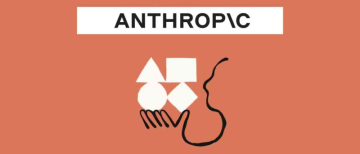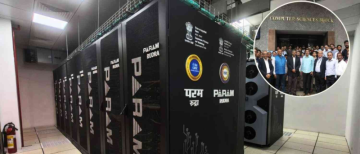Elon Musk has officially unveiled Grokipedia, an artificial intelligence–powered encyclopedia built by his AI startup xAI. The billionaire entrepreneur announced the launch on X (formerly Twitter), positioning the platform as a bold alternative to Wikipedia, a site he has frequently criticized for its “editorial bias.”
However, while Musk touts Grokipedia as a more truthful, next-generation knowledge hub, early users have noticed that some of its content appears to be adapted directly from Wikipedia—a revelation that adds an ironic twist to its debut.
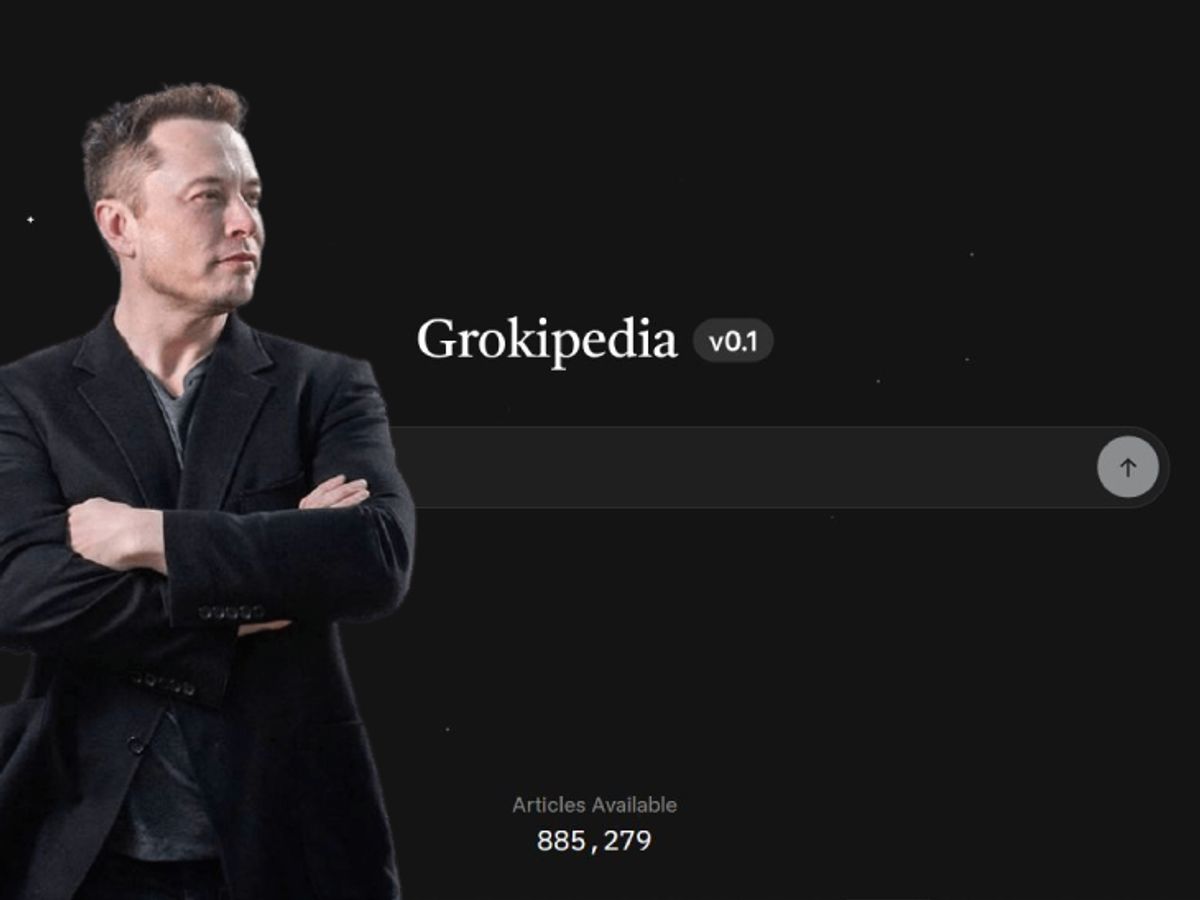
“Grokipedia.com Version 0.1 is Now Live,” Musk Announces
Elon Musk shared the news of Grokipedia’s launch in his signature style — via an X post.
“Grokipedia.com version 0.1 is now live,” Musk wrote. “Version 1.0 will be 10X better, but even at 0.1 it’s better than Wikipedia imo.”
In another post, the Tesla and SpaceX CEO outlined the vision behind Grokipedia and its AI counterpart, Grok, stating:
“The goal of Grok and Grokipedia.com is the truth, the whole truth, and nothing but the truth. We will never be perfect, but we shall nonetheless strive towards that goal.”
This declaration sets the tone for Musk’s latest digital venture — one that aims to use AI to “fact-check” and organize human knowledge in real time, while allegedly minimizing bias.
Grokipedia vs. Wikipedia: A Tale of Two Encyclopedias
While Grokipedia and Wikipedia share the same fundamental mission — compiling and sharing knowledge — their approach, structure, and philosophy differ significantly. Here’s a breakdown of the key distinctions between the two:
1. Origin and Purpose
-
Wikipedia was founded in 2001 as a non-profit, community-driven encyclopedia, created through the Wikimedia Foundation. Its mission: to make verified, human-curated knowledge freely available to everyone.
-
Grokipedia, on the other hand, is the product of xAI, Musk’s artificial intelligence company. It aims to leverage AI — specifically the Grok model — to compile and update information faster and more efficiently than traditional human editors.
2. Content Creation
-
Wikipedia’s content is entirely written and maintained by human volunteers, who cite sources, cross-verify facts, and transparently record every edit. Each change is publicly visible.
-
Grokipedia relies heavily on AI-generated and AI-curated material, with Grok processing and summarizing large volumes of information. While Grokipedia claims to “fact-check” its entries using Grok, human oversight appears limited.
This makes Grokipedia potentially faster in updating entries but raises questions about accuracy, accountability, and AI hallucination risks.
3. Governance and Transparency
-
Wikipedia’s governance model is open and democratic. It operates under a non-profit structure, with transparent moderation processes and accessible edit histories for every page.
-
Grokipedia, conversely, is corporate-owned and operated by xAI, a for-profit venture. It currently restricts user edits, and there’s no full transparency yet on who changes what, or how content is moderated.
4. Reliability and Bias
-
Wikipedia has long faced criticism for editorial inconsistencies and bias, but its open nature allows anyone to inspect sources, debate edits, and correct errors.
-
Grokipedia’s AI-generated content might introduce new forms of bias — this time from training data and algorithmic influence. Without public edit trails, verifying facts could be more challenging in the platform’s early stages.
5. Accessibility and Philosophy
-
Wikipedia’s philosophy is built on open collaboration: free, multilingual, and accessible to all under the Creative Commons License.
-
Grokipedia, being tied to Musk’s xAI and X (Twitter) ecosystem, could become partially closed, monetized, or platform-dependent — signaling a shift toward corporate control rather than public ownership of knowledge.
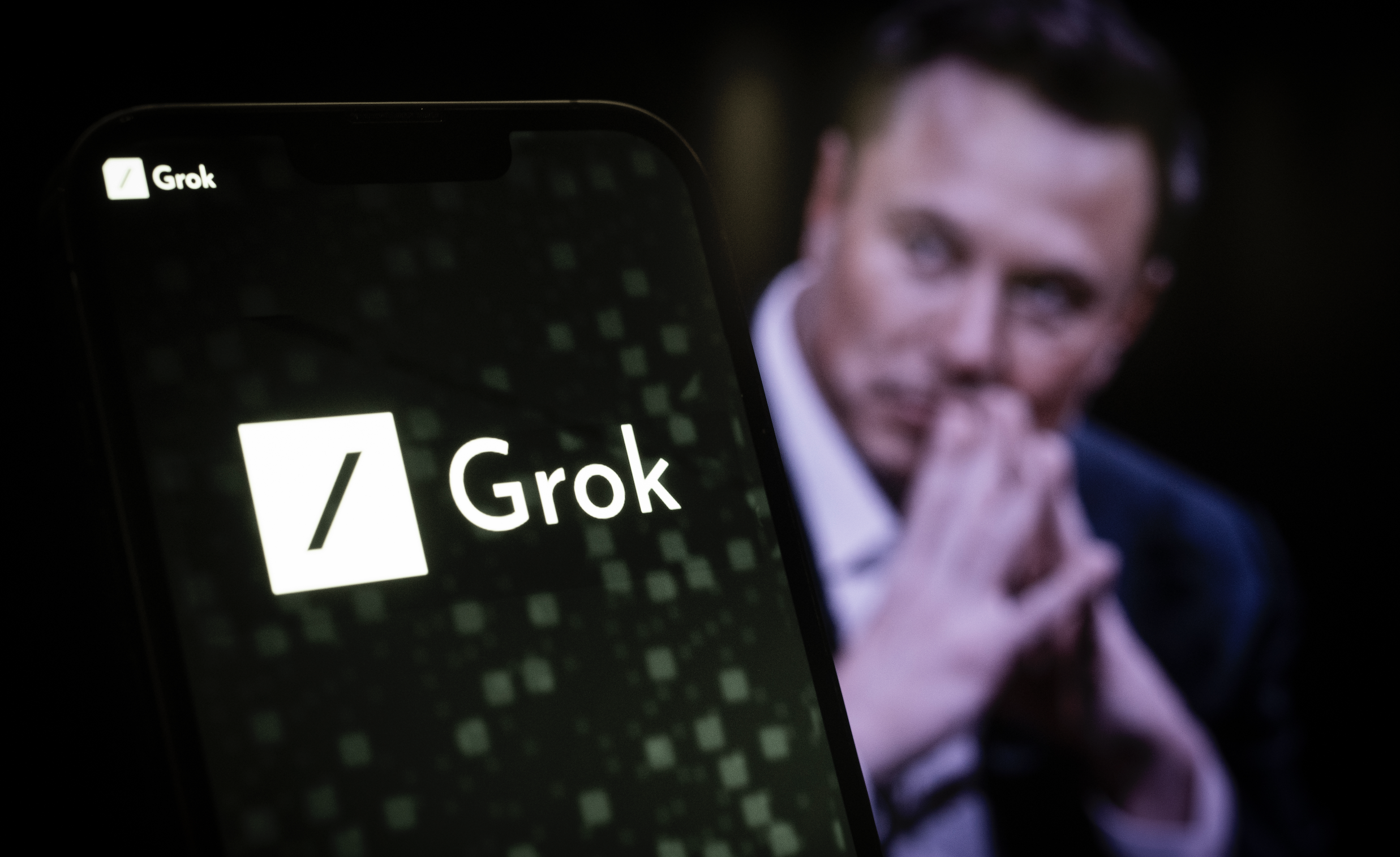
The Wikipedia Connection: Adapted Content and Disclaimers
Shortly after launch, users began spotting familiar phrasing across Grokipedia pages. Topics like “Nobel Prize” and “Monday,” as reported by NBC News, displayed a small but revealing disclaimer at the bottom of the page:
“The content is adapted from Wikipedia, licensed under Creative Commons Attribution-ShareAlike 4.0 License.”
This notice confirms that certain Grokipedia entries indeed pull from Wikipedia’s open-licensed content, though presented under the Grokipedia brand and fact-checked by Grok AI.
The platform’s footnotes also mention that its articles are “fact-checked by Grok”, xAI’s AI chatbot integrated with the X ecosystem. However, several users on X have pointed out direct copying or light paraphrasing of Wikipedia text — raising questions about how original Grokipedia’s content truly is.
When one user commented earlier this month, “You know Grok uses Wiki pages?”, Musk himself responded:
“I know. We should have this fixed by end of year.”
This acknowledgment suggests xAI plans to phase out or modify Wikipedia-sourced content in future versions — possibly as Grokipedia evolves into a more autonomous AI knowledge engine.
Wikipedia’s Response: “Our Knowledge Will Always Be Human”
In a statement following Grokipedia’s debut, the Wikimedia Foundation, which operates Wikipedia, reaffirmed its commitment to human collaboration and collective knowledge creation.
“Wikipedia’s knowledge is — and always will be — human,” the foundation said.
“Through open collaboration and consensus, people from all backgrounds build a neutral, living record of human understanding — one that reflects our diversity and collective curiosity. This human-created knowledge is what AI companies rely on to generate content; even Grokipedia needs Wikipedia to exist.”
The foundation’s response highlights a crucial point: AI-generated encyclopedias still rely on the human-curated data that platforms like Wikipedia have built over decades. It also noted that numerous past efforts to create AI-driven or alternative encyclopedias have surfaced, but none have disrupted Wikipedia’s mission or relevance.
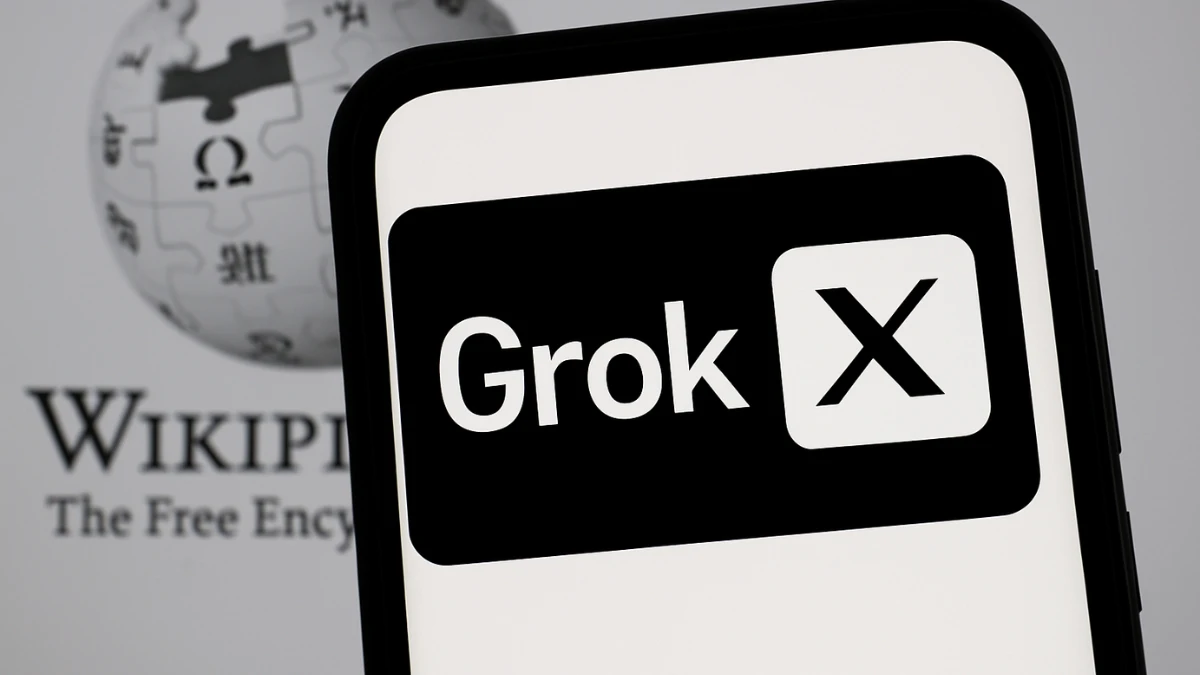
A Rival or a Reinvention?
Musk’s Grokipedia isn’t just a new website; it represents a philosophical challenge to how we define and distribute truth in the age of AI. While Wikipedia’s model depends on collective human input, Musk’s vision prioritizes AI curation and speed over manual editorial labor.
Proponents argue that Grokipedia could solve problems like outdated pages or slow fact-checking. AI can, in theory, synthesize breaking news, scientific updates, and historical data faster than human editors.
But critics warn that AI’s hallucination issues, lack of accountability, and opaque training data could make Grokipedia less reliable, especially without community oversight.
How Does Grokipedia Measure Up?
In a comparison test, Grokipedia’s early version (v0.1) was evaluated against Wikipedia across multiple criteria — from accuracy and usability to transparency and depth of information.
Here’s what emerged:
-
Speed vs. Substance:
Grokipedia’s AI-driven summaries deliver information faster, but often with less context than Wikipedia’s detailed entries.
-
Fact-Checking Claims:
While xAI claims all entries are “fact-checked by Grok,” the lack of visible sources or citations limits user confidence in its reliability.
-
Originality:
Several entries appeared partly adapted or reworded from Wikipedia content, aligning with Musk’s own admission.
-
User Involvement:
Unlike Wikipedia’s open editing model, Grokipedia currently doesn’t allow public contributions, making it more of a closed knowledge platform.
-
Future Promise:
Despite its early limitations, Musk’s AI encyclopedia could evolve into a powerful real-time knowledge engine, once Grok’s accuracy and data independence improve.
Cool. I’m reading these for the first time btw.
Grok generated about 1M articles using a lot of compute.
You will be able to ask Grok to add/modify/delete articles and it will either take the action or tell you it won’t and why. https://t.co/nzpzi0R73o— Elon Musk (@elonmusk) October 28, 2025
Where Grokipedia Stands Now
At present, Grokipedia remains in its beta phase (version 0.1), with under a million entries, compared to Wikipedia’s tens of millions spanning hundreds of languages.
Musk has promised that version 1.0 — expected in the near future — will be ten times better than the current version, potentially expanding features, coverage, and AI refinement.
As of now, it stands as both a technological experiment and a provocative statement against human-led editorial models. Its success will likely depend on how well Grokipedia can balance AI automation with transparency, factual accuracy, and ethical content creation.
The Bigger Picture: AI’s Role in the Knowledge Economy
Grokipedia’s debut reflects a broader trend in the digital landscape — the AI-ification of information platforms. From search engines integrating AI answers to AI writing assistants replacing human summarizers, the question of who controls “truth” is becoming more complex.
Wikipedia’s stance — “knowledge must remain human” — contrasts sharply with Musk’s belief that AI can uncover truth free from human bias. Yet, both sides depend on the other: AI needs human-verified data, and humans increasingly turn to AI to organize it.
https://t.co/op5s4ZiSwh version 0.1 is now live.
Version 1.0 will be 10X better, but even at 0.1 it’s better than Wikipedia imo.— Elon Musk (@elonmusk) October 28, 2025
Final Words
Elon Musk’s Grokipedia has entered the information battlefield with bold ambitions: to challenge Wikipedia and redefine how knowledge is generated and verified in the AI era. Its launch may be imperfect — with copied content, limited transparency, and an early-stage interface — but it signals a significant shift toward AI-curated knowledge systems.
As Grokipedia evolves beyond version 0.1, it will face the challenge of proving that AI can not only replicate but also enhance the accuracy, neutrality, and depth of human-driven knowledge platforms. Until then, the debate continues — Can machines tell the truth better than humans?
With inputs from agencies
Image Source: Multiple agencies
© Copyright 2025. All Rights Reserved. Powered by Vygr Media.









